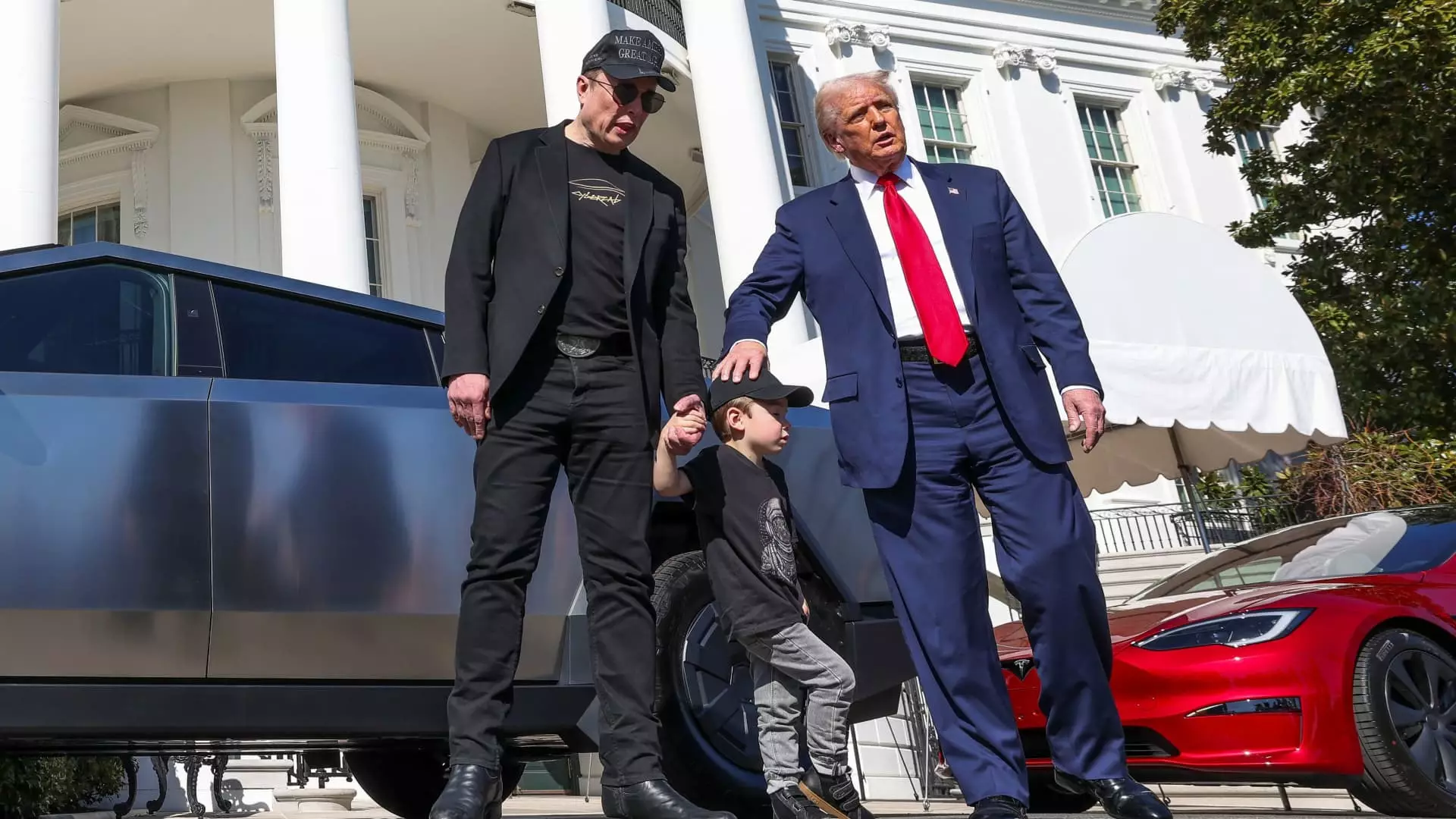In a climate where corporate leadership is defined not just by business decisions but also by political stances, the ramifications of Elon Musk’s increasing involvement in politics are becoming more than just a footnote in Tesla’s narrative. The recent Morgan Stanley survey reveals that a staggering 85% of participants perceive Musk’s foray into the political arena as detrimental to the company’s performance. This sentiment is not merely anecdotal; it reflects a broader concern where the intersection of business and politics can sometimes lead to corrosive outcomes.
While the survey population—245 individuals—may not represent a comprehensive view, it’s indicative of the anxiety brewing among stakeholders. Specifically, the majority of respondents seem less focused on the innovation and bold vision that have characterized Musk’s career, positioning him instead as a liability. Musk’s ventures outside Tesla, particularly his support for contentious political figures and policies, does not simply come off as a quirky side pursuit; they risk reshaping public perception of the brand in negative terms.
Delivery Expectations: A Vote of No Confidence
The outlook for Tesla’s deliveries aligns disturbingly with the sentiment regarding its CEO’s political misadventures. According to the same survey, a considerable share—59%—believe that Tesla will deliver fewer vehicles in 2025 in comparison to 2024. This statistic could indicate a looming crisis; potential customers may not just be discouraged by Musk’s political choices but also worried about the implications of a disjointed company culture that seems to prioritize external political debates over internal harmony and advancement.
As stock prices dwell at nearly a 40% decline this year, the stakes for Tesla have never been higher. The warning signs are all there, suggesting that consumer confidence is hanging by a thread. Publicized incidents of vandalism at Tesla dealerships have only added fuel to the fire, reinforcing the notion that the brand’s reputation is under siege. Business performance appears to be tied closely to public sentiment, which is turning increasingly against the CEO’s interventions in politics.
Musk’s Governance and Corporate Efficacy Under Scrutiny
Musk’s venture into governance—specifically his leadership role in optimizing U.S. government efficiency as part of the Trump administration—has drawn ire from critics who argue that his approach is reckless and poorly thought out. Musk himself confessed that running his business during these tumultuous political times is filled with challenges, leading to a detrimental impact on Tesla. This admission is significant; if the man at the helm acknowledges the difficulties, what does that say about the company’s future trajectory, particularly as it strives to get back on stable footing?
These entanglements in political leadership—often perceived as whimsical rather than strategic—appear to detract from the clarity and decisiveness needed to run a tech-heavy enterprise like Tesla. The survey results, which indicate that 85% of respondents believe Musk’s political activities are harmful, reflect a concerning disconnect between the focus of a CEO and the essential requirements for sustained business success.
Public Opinion and the Outlook for Tesla’s Stock
While 45% of those surveyed foresee a potential rebound in Tesla’s stock, the conflicting opinions reveal a profound uncertainty hovering above the enterprise. The duality of optimism and impending doom creates a paradox that investors must navigate. With 36% expecting further declines in the stock price, the mixed signals are indicative of a wider malaise that extends beyond mere market forces. This situation unfolds against a backdrop of increased scrutiny of Musk’s public persona, especially after he received both criticism and praise from notable political figures—including President Trump himself.
The key takeaway from the survey and Musk’s ongoing political involvement is not whether Tesla can achieve technical and production milestones but whether it can maintain a cohesive brand that resonates with consumers amidst such volatility. As politicization seeps into every sector, Tesla serves as an instructive case study on how a leader’s external activities can overwhelmingly shape perceptions and hinder potential growth.
In short, Musk’s political pursuits are more than just an eccentric hobby; they have become a handicap that could drastically reshape the chances of Tesla and its stakeholders in an ever-evolving market landscape.


Leave a Reply